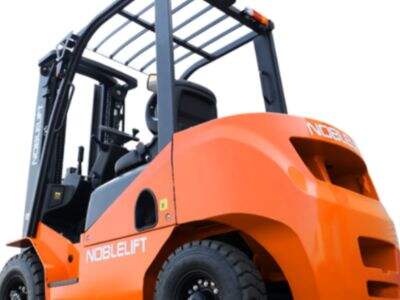Electric Trucks: Electric-powered trucks have become increasingly popular with more people opting for them to transport luggage from one location to the other. They all have their up- and downsides. You should know what features make one truck stand out and also understand the shortcomings of another so that you are in a better position to decide which one is suitable for your requirements.
The Best and Worst of Electric versus Gas-Powered Trucks
These batteries and electric motors make the truck become an electrified Ecoboost vehicle in low range. Do electric trucks help protect the environment? There are no harmful gases or pollution is produced in this, as it ends and cleans our air. This is likely why many businesses also choose electric trucks when looking to be more environmental-conscious and cut down on their carbon footprint. Another cool thing is that electric trucks are much cheaper to run. But, it costs around $0.30 per mile to ship with them which is far cheaper than the cost of riding an gas-powered truck.
On another note, gas-powered trucks are powered by diesel or gasoline engines. They move well long distances, so transport enterprises frequently make use of them when they should haul items over vast regions. Yet, their use in gas-powered trucks has its problems. Generating bad gases which is no good for air to breathe, adding the fact into Air pollution. That can be really bad for our health and the environment.
5 Things to Know About Electric Trucks
Electric trucks are a more recent concept, and you should give some thought to them before determining that they can be the right fit for your needs. For example, most electric trucks will be able to handle around 300 miles on a full charge. Which also means you will have to plan in advance where and how far you drive the truck. The problem, secondly, is that electric trucks don't have today the kind of ubiquitous places at which gas is dispensed. The pushes us to plan, if we want make sure that the truck is able charge at a point along its trip.
Electric Trucks vs Gas-Powered Trucks
There are many important factors to evaluate when deciding between electric and gas-powered trucks. The very first thing we must do is consider the distance where you will certainly be driving. The Fuso eCanter can last about 60 km to a full charge, so it's really meant for local deliveries; long hauls are better suited to conventional internal combustion engines. Gas vehicles are often used for long haul transporting large goods across vast areas.
The other aspect that is an essential to look into before buying any truck and trailer; can be the maintenance cost. Compared to gas-powered trucks, electric heavy-duty haulers have few moving parts. This means that they are usually easier to care for and can be a cheaper investment over time. AA, gas-guzzling trucks typically require more maintenance — and involve pricier oil changes and engine repairs that can accumulate over the vehicle's life.
What Truck Has The Most Value Down the Road?
If you are on the fence between electric and gas-powered trucks, consider how much the vehicles will be used and driven. Electric trucks also can be the best value if you're mainly using them for a small number of miles. And that's because running costs are lower and they're easier to maintain.
Nevertheless, if the UTVs will traveling long distances, then gas powered vehicles could be more suitable for you. Electric trucks, on the other hand, require recharging and typically take much longer to refuel than diesel or gas-powered vehicles.
By Jim Poulin | Phoenix Business Journal
In order to figure out which truck type would be suitable for your business, you should consider what are going to be your transportation requirements. For short delivery trips, electric trucks make practical sense. They provide environmental protection, lower operational costs and are better to maintain.
But, if your work is done at distance by carrying goods and materials gas-powered trucks are most likely the champion. In exchange for being more expensive to operate they make up the distance covered without needing a top-off. This may help you make your deliveries faster and more efficient.

 EN
EN
 AR
AR
 FR
FR
 DE
DE
 IT
IT
 KO
KO
 ES
ES

